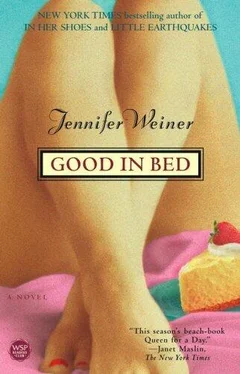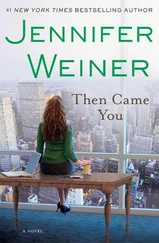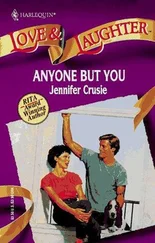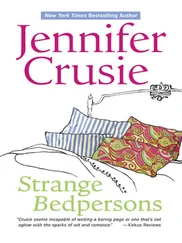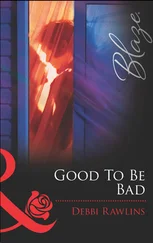I took a deep breath, willing the panic to subside. “Okay,” I said. “Just know that I’m there for you.”
He nodded gravely. “I appreciate that, Cannie,” he said, as if I’d just offered him financial planning advice instead of my heart on a platter. I went to kiss him. He offered me his cheek. Fine, I thought, getting into the car, gripping the steering wheel tightly so he wouldn’t see my hands shake. I can be patient. I can be mature. I can wait for him. He loved me so much, I thought, speeding home through the dark. He’ll love me again.
When I took Psychology 101, the professor taught us about random reinforceme nt. Put three groups of rats in three separate cages, each equipped with a bar. The first group of rats got a pellet every time they pressed the bar. The second group never got pellets, no matter how often they pressed. And the third group got pellets just once in a while.
The first group, the professor said, eventually gets bored with the guaranteed reward and the rats who never get treats give up, too. But the random rats will press on that bar forever, hoping each time they press that this time the magic will happen, that this time they’ll get lucky. It was at that moment in class that I realized that I had become my father’s rat.
He’d loved me once. I remembered it. I had a handful of mental pictures, postcards that had gotten soft around the edges from being handled so often. Scene one: Cannie, age three, snug in her father’s lap, her head against his chest, feeling his voice rumble through her as he read Where the Wild Things Are. Scene two: Cannie, age six, holding hands with her daddy as he led her through the doors of the elementary school on a warm summer Saturday to take her first grade readiness test. “Don’t be shy,” he tells her, kissing both her cheeks. “You’ll do great.”
I remember being ten years old spending whole days with my father, running errands, meeting his secretary, and Mrs. Yee at the dry cleaners who did his shirts, the salesman at the clothing store who looked at my father with respect as he paid for his suits. We’d pick up brie at the fancy cheese shop that smelled wonderfully of freshly roasted coffee beans, and jazz records at Old Vinyl. Everyone knew my father’s name. “Dr. Shapiro,” they’d greet him, smiling at him, at us, lined up in a row, from oldest to youngest, with me at the head of the line. He’d put one big warm hand on my head, stroking my ponytail. “This is Cannie, my oldest,” he’d say. And all of them, from the clerks at the cheese store to the security guards in his building, seemed to know not just who he was, but who I was, too. “Your father says you’re very smart,” they’d say, and I’d stand there, smiling, trying to look smart.
But days like that became rare as I got older. The truth was, my father mostly ignored me. He ignored all of us – Lucy, and Josh, and even my mother. He came home late, he left home early, he spent his weekends in the office or on long drives “to clear my head.” Whatever affection we got, whatever notice he paid us, was parceled out in small doses, administered infrequently. But oh, when he loved me, when he put his hand on my head, when I leaned my own head against him… there was no feeling in the world that could beat it. I felt important. I felt cherished. And I would do whatever it took, press the bar until my hands bled, to get that feeling again.
He left us for the first time when I turned twelve. I came home from school and there he was, unexpectedly, in the bedroom, piling undershirts and sock balls into a suitcase. “Dad?” I asked him, startled to see him in the daytime. “Are you… are we…” I wanted to ask if we were going somewhere – a trip, maybe? His eyes were heavy and hooded. “Ask your mother,” he said. “She’ll explain.” And my mother did explain it – that both she and my father loved us very much, but they couldn’t work things out between the two of them. I was still numb from the shock of that when I found out the truth of what was going on from Hallie Cinti, one of the popular girls. Hallie was on my soccer team, but in a completely different league socially. On the field she frequently looked as though she’d prefer that I not pass to her, as if my foot on the ball could transmit my own personal taint and send nerd-germs creeping through her cleats. Three years later she’d be infamous for administering restorative blow-jobs to three of the five starters on the boys’ basketball team during half-time of the state play-offs, and we’d all be calling her Hallie Cunti, but I didn’t know that yet.
“Heard about your father,” she said, plunking herself down at my table, which was in a corner of the lunchroom where Hallie Cinti and her ilk rarely ventured. The chess club kids and my friends from Junior Debaters stared, open-mouthed, as Hallie and her friend Jenna Lind slung their purses over the backs of two plastic chairs and stared at me.
“Heard what?” I asked warily. I didn’t trust Hallie, who’d ignored me through six years of school, or Jenna, whose hair was always perfectly feathered.
Hallie, as it turned out, couldn’t wait to tell me. “I heard my Mom talking about it last night. He moved in with some dental technician on Copper Hill Road.”
I toyed with my peanut butter sandwich, buying time. Was this true? How could Hallie’s mother know? And why was she talking about it? My mind was fluttering with questions, plus the half-remembered faces of all the women who’d ever scraped my teeth.
Jenna leaned in to deliver the coup de grace. “We heard,” she said, “that she’s only twenty-seven.”
Well. So that would explain the gossip. Hallie and Jenna stared at me, and my debate-team friends stared at them staring. I felt like I’d been suddenly thrust onstage, and I didn’t know my lines, or even what I was supposed to be performing.
“So is it true?” Hallie asked impatiently.
“It’s no big deal,” said Jenna, evidently hoping to get me to spill via sympathy. “My parents are divorced.”
Divorced, I thought, tasting the word. Was this really what was happening? Would my Dad do this to us?
I lifted my eyes to the popular girls. “Go away,” I told them. I heard one of my debate friends gasp. Nobody talked to Jenna and Hallie that way. “Leave me alone. Go away!”
Jenna rolled her eyes. Hallie shoved her seat back. “You’re a big fat loser,” she opined, before scurrying back to the popular kids’ tables, where everyone’s shirts had little alligators, and all the girls ever had for lunch was Diet Coke.
I walked home slowly and found my mother in the kitchen, with about ten half-unpacked bags of groceries arrayed on the counters and dining room table. “Is Dad living with someone else?” I blurted. She shoved three packages of chicken breasts into the freezer and sighed, her hands on her hips.
“I didn’t want you to find out like this,” she murmured. “Hallie Cinti told me,” I said.
My mother sighed again.
“But she doesn’t know anything,” I said, hoping my mother would agree.
Instead she sat at the kitchen table and motioned for me to join her. “Mrs. Cinti works at the same hospital as your Dad,” she said.
So it was true.
“You can tell me things. I’m not a little kid.” But at that moment, I wished that I was a little kid – the kind whose parents still read to her in bed and held her hands when she crossed the streets.
My mother sighed. “I think this might be for your father to tell you.”
But that conversation never happened, and two nights later, my father had moved back. Josh and Lucy and I stood in the backyard and watched him pull the suitcase out of the trunk of his little red sports car. Lucy was crying, and Josh was trying not to. My father never even looked at us as he crossed the gravel driveway, the heels of his boots crunching with each step.
Читать дальше
